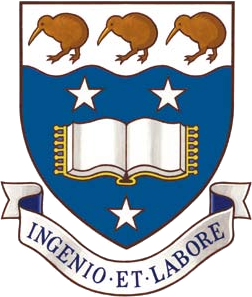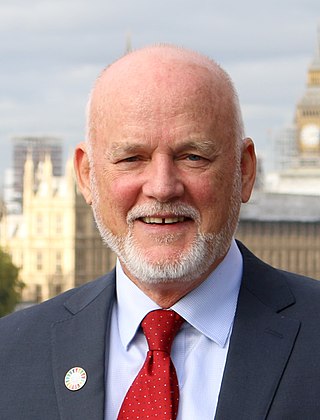Related Research Articles

Médecins Sans Frontières, also known as Doctors Without Borders, is a charity that provides humanitarian medical care. It is a non-governmental organisation (NGO) of French origin known for its projects in conflict zones and in countries affected by endemic diseases. The organisation provides care for diabetes, drug-resistant infections, HIV/AIDS, hepatitis C, tropical and neglected diseases, tuberculosis, vaccines and COVID-19. In 2019, the charity was active in 70 countries with over 35,000 personnel; mostly local doctors, nurses and other medical professionals, logistical experts, water and sanitation engineers, and administrators. Private donors provide about 90% of the organisation's funding, while corporate donations provide the rest, giving MSF an annual budget of approximately US$1.63 billion.

The University of Waikato, is a public research university in Hamilton, New Zealand established in 1964. An additional campus is located in Tauranga. The university performs research in the disciplines of education, social sciences, and management and is an innovator in environmental science, marine and freshwater ecology, engineering and computer science. It offers degrees in health, engineering, computer science, management, Māori and Indigenous Studies, the arts, psychology, social sciences and education.

Valerie Ann Amos, Baroness Amos, is a British Labour Party politician and diplomat who served as the eighth UN Under-Secretary-General for Humanitarian Affairs and Emergency Relief Coordinator. Before her appointment to the UN, she served as British High Commissioner to Australia. She was created a life peer in 1997, serving as Leader of the House of Lords and Lord President of the Council from 2003 to 2007.

The University of Auckland is a public research university based in Auckland, New Zealand. The institution was established in 1883 as a constituent college of the University of New Zealand. Originally it was housed in a disused courthouse. Today, the University of Auckland is New Zealand's largest university by enrolment, hosting about 40,000 students on five Auckland campuses. The City Campus, in the Auckland CBD, has the bulk of the students and faculties. There are eight faculties, including a law school, as well as three associated research institutes.

Humanitarian aid is material and logistic assistance to people who need help. It is usually short-term help until the long-term help by the government and other institutions replaces it. Among the people in need are the homeless, refugees, and victims of natural disasters, wars, and famines. Humanitarian relief efforts are provided for humanitarian purposes and include natural disasters and human-made disasters. The primary objective of humanitarian aid is to save lives, alleviate suffering, and maintain human dignity. It may, therefore, be distinguished from development aid, which seeks to address the underlying socioeconomic factors which may have led to a crisis or emergency. There is a debate on linking humanitarian aid and development efforts, which was reinforced by the World Humanitarian Summit in 2016. However, the conflation is viewed critically by practitioners.
Medical torture describes the involvement of, or sometimes instigation by, medical personnel in acts of torture, either to judge what victims can endure, to apply treatments which will enhance torture, or as torturers in their own right. Medical torture overlaps with medical interrogation if it involves the use of professional medical expertise to facilitate interrogation or corporal punishment, in the conduct of torturous human experimentation or in providing professional medical sanction and approval for the torture of prisoners. Medical torture also covers torturous scientific experimentation upon unwilling human subjects.
Emergency Sex and Other Desperate Measures, by Heidi Postlewait, Kenneth Cain and Andrew Thomson, is a 2004 memoir of three young people who join the United Nations (UN) during the 1990s. It recounts the authors' experiences during the United Nations Transitional Authority in Cambodia and UN peacekeeping operations.
There are a number of meanings for the term humanitarian. Here, humanitarian pertains to the practice of saving lives and alleviating suffering. It is usually related to emergency response whether in the case of a natural disaster or a man-made disaster such as war or other armed conflict. Humanitarian principles govern the way humanitarian response is carried out.

Andrew Michael MacLeod is an Australian/British philanthropist, businessman, author, humanitarian lawyer, and former aid worker.

Yōhei Sasakawa is chairman of The Nippon Foundation, the World Health Organization Goodwill Ambassador for Leprosy Elimination, and Japan's Ambassador for the Human Rights of People Affected by Leprosy. His global fight against leprosy and its accompanying stigma and social discrimination is an issue to which he has remained highly committed for more than 40 years. As chairman of The Nippon Foundation, Japan's largest charitable foundation, he guides public-interest activities in modern Japan. Sasakawa received his degree from Meiji University’s School of Political Science and Economics. Sasakawa's father was businessman, politician, and philanthropist Ryōichi Sasakawa.

Stephen Nicholas Cluley Bolsin is a British anaesthetist whose actions as a whistleblower exposed incompetent paediatric cardiac surgery at the Bristol Royal Infirmary leading to the implementation of clinical governance reforms in the United Kingdom.

Ross Stewart Mountain has spent most of his career in the service of the United Nations working on humanitarian, recovery, development and peacekeeping operations in Asia, Africa, the Middle East, the Caribbean, and the Pacific as well as assignments based in Geneva, Switzerland promoting non-governmental action and managing UN humanitarian operations.
Thad McIntosh Guyer is an American civil rights and whistleblower lawyer, lecturer and advisor with an international law practice based in Oregon. He is known for defending whistleblowers in retaliation cases at large institutions including the United Nations, World Bank, International Labour Organization and African Development Bank.

Peter Thomson is a Fijian diplomat and the United Nations Secretary-General's Special Envoy for the Ocean, and President of the United Nations General Assembly from September 2016 until September 2017. He served as Fiji's Permanent Representative to the United Nations February 2010 to August 2017, with concurrent duties as Fiji's Ambassador to Cuba.
Divya Dhar is a medical doctor from New Zealand. In 2010 she received the Young New Zealander of the Year Award.

Michael Johannes VanRooyen is an American humanitarian and physician, best known for his expertise in emergency medicine and aid delivery in humanitarian crises. VanRooyen is the co-founder and current director of the Harvard Humanitarian Initiative at Harvard University, a university-wide research center that aims to provide practice-based solutions to "relieve human suffering in war and disaster" through interdisciplinary research, education, and policy-development. A leader in the humanitarian field, Boston magazine posited that "the Harvard professor's exploits have inspired legions of followers to dedicate themselves to helping right the political, military, and environmental wrongs of the world."
Frederick M. "Skip" Burkle, Jr. is an American physician known for his work in human rights, international diplomacy and peacemaking, humanitarian assistance, and disaster response. He has been called "the single most talented and experienced post-conflict health specialist working for the United States government." His medical qualifications include pediatrics, emergency medicine, psychiatry, public health, and tropical medicine.

The 2019 Samoa measles outbreak began in September 2019. As of 6 January 2020, there were over 5,700 cases of measles and 83 deaths, out of a Samoan population of 200,874. Over three per cent of the population were infected. The cause of the outbreak was attributed to decreased vaccination rates, from 74% in 2017 to 31–34% in 2018, even though nearby islands had rates near 99%.

Richard Andrew Davies is a British-born New Zealand doctor. He is the viceregal consort of New Zealand as the husband of Dame Cindy Kiro, who has been the governor-general since 21 October 2021. Davies previously served as a member of the Falkland Islands Legislative Council from 2005 to 2007, and represented the Falkland Islands at the United Nations Special Committee on Decolonization meetings in 2006 and 2007.
James Maskalyk is a Canadian emergency medicine physician, author, and meditation teacher.